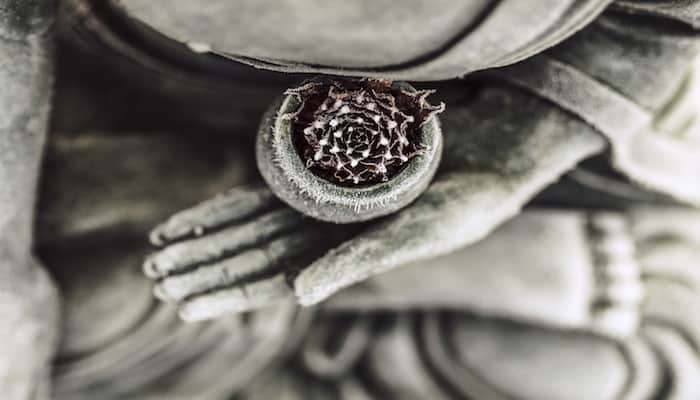Blog: Overcoming Denial: Part 1
By Denise Colby, Ph.D.
Of all of the defense tactics and cycles of negativity that we get wrapped up in during our human experience, denial is perhaps the hardest to overcome. It’s insidious and manipulative, yet we cling to it fiercely.
We see denial everywhere we look. It is as rampant on the public and cultural scale as it is in our relationships. The external stage, as always, provides a mirror for our own inner relationship to truth. To live in truth, we must examine further the sources, motivations for, and consequences of denial on the inner stage, for it is only through the resolution of our own rejection of truth that we can begin to clearly see and resolve the external falsehoods that abound.
Denial arises when faced with a truth that we consider unbearable or unsafe to hold in our current narrative or stage of development. For example, my mother hurts me. I need my mother to survive, and there’s no possibility of finding another one. Therefore, my mother is good and the hurt must be justified. Commonly, the child then turns on itself and pieces together a narrative story of the Self in which the abuse is reasonable and makes sense. Or in which the abuse is happening, but they aren’t being harmed by it.
It’s not uncommon to engage in some level of dissociation in order to accomplish this enormous feat, and in this case the child may not be consciously aware of the abusive behavior at all. From the outside, this quite deliberate warping of the truth may not make a lot of sense, but if we look deeper, we see that it’s a very powerful approach. When faced with the negative intentionality and harm carried out by someone who, for a variety of reasons, is in a position of power over us, we cannot help but feel powerless. There is no getting away. There is no way to avoid what is happening to us in this moment.
The pain of powerlessness against the harm of another is extremely difficult to hold, especially when the harm is ongoing, with no end in sight, as it is often experienced during childhood. In order to survive this reality, the Self attaches to an idea- however false – that gives the person some sense of power or fairness in their world. The Self creates a story that feels more manageable in the face of a reality that is too senseless to comprehend.
Looking through this lens, we can begin to see just how powerful a force denial is, and why we cling to it so fiercely. To acknowledge that our narrative is false forces us to acknowledge the pain that lies beneath it. To see reality involves the ability and willingness to hold not just the pain, but also the anger, grief, sadness, and sense of loss that arises out of and in reaction to the pain itself.
Instead we twist ourselves into tighter and increasingly tangled knots to maintain the story in which our experience of trauma simply never happened, or is totally excusable. We will do whatever it takes to keep that story alive, even if we must annihilate ourselves in the process. Self-annihilation feels a whole lot more powerful than facing the potential of annihilation at the hands of another. We will go on doing this for as long as we can – either until the pain of denial itself becomes too great, or until we come face to face with how our own denial is impacting those we hold most dear. It takes a lot to convince us to put down a device that allowed us to survive.
Although this strategy can initiate in adulthood in response to trauma, the time of life that it takes root most deeply is during childhood. Denial is frequently a reaction that we cycle through in response to acutely traumatic events in adulthood, but as adults we are capable of understanding the complexities of the human experience; the interdependence of all living beings. That sometimes people act out of their own wounding and that it says nothing about us on a personal level at all.
In short, as adults we are able to process and integrate the complexities of the traumas we face and come through them in a state of wholeness. We pass through denial, rather than clinging to it as a means of survival. Children, however, lack this understanding and know only what they’ve directly experienced and what they’ve been taught. Children are also, by nature, egocentric and firmly convinced that everything they experience is directly connected to their Selfhood. They are therefore left with little choice but to experience a reality in which they are the central figure and everything that happens to them is acutely personal.
As we get older, we adopt a variety of strategies to partner with our denial and employ whenever we are faced with the pain of experience. These range from the internalization of a critical voice, spiritual bypassing, or identification with a powerful emotion such as anger or scorn, to name a few. The devices that keep us in denial are as variable as experience itself, but they all boil down to a common theme of allowing us to feel a sense of power or agency in the face of powerlessness.
If we continue to choose blindness, the world will make it quite easy to stay there. Denial is convenient for everyone involved. It keeps family structures intact, maintains the cultural status quo, and spares us the discomfort of looking inside ourselves in an uncomfortable way. Our abusers, and anyone complicit in their behavior, would quite prefer it if we remained in denial, and it is not uncommon to have a structure of brainwashing operative alongside structures of harm. Once we choose a path of consciousness, however, it can be quite difficult to hold back the floodgates of truth, as we will begin to find evidence of our denial in everything we do.
Editors’ Note: Denise Colby, Ph.D. is a certified Depth Hypnosis Practitioner based in San Francisco, CA.
ENJOYING THE STREAM OF CONSCIOUSNESS BLOG? SIGN UP FOR FREE UPDATES!



